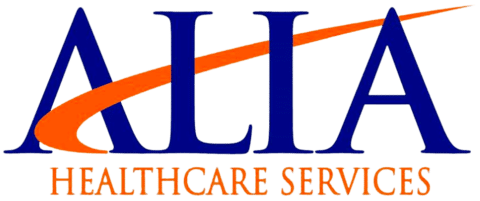Are you torn between starting with a Licensed Practical Nurse (LPN) program or jumping straight into a Registered Nurse (RN) program? Choosing the right educational path in the field of nursing is a crucial decision that can shape your career trajectory.
Aspiring nurses often deliberate between pursuing an LPN program, also known as a vocational nurse program or an RN program. While both programs offer unique pathways into the nursing profession, each with its own set of advantages and considerations.
Let’s delve into why opting for an LPN program is the ideal choice for you!
-
Quicker Entry into the Workforce
LPN programs offer a more expedited path to entering the healthcare industry. With a duration typically shorter than RN programs, prospective nurses can embark on their professional journey sooner.
While typical practical nursing programs are 12-18 months, ALIA School of Nursing’s LPN program fast-tracks your journey to health care in just 10, offering a shorter path.
This accelerated time frame means students can gain practical, real-world experience earlier, which not only enhances their skills but also allows them to contribute to patient care and build their nursing careers sooner than if they pursued an RN program.
-
Cost Savings
The financial aspect is a significant consideration for many prospective students. Practical nursing school programs often come with lower tuition fees and fewer associated expenses compared to RN programs.
This affordability factor is particularly appealing to individuals seeking quality education while managing their budget effectively. It presents an opportunity to acquire essential nursing education requirements without incurring substantial student debt, making it an economically sensible choice for many aspiring nurses.
-
Building Fundamental Skills
LPN programs prioritize the development of foundational nursing skills. Students receive training in fundamental aspects of basic patient care, medical terminology, and crucial nursing procedures along with fulfilled clinical hours.
The scope of practice includes providing basic care to patients such as administering medication, drawing blood, checking vital signs, wound care, and more. These nursing fundamentals and experience form the bedrock of a successful career, ensuring that graduates are well-equipped to handle various healthcare scenarios with confidence and proficiency.
-
Flexible Learning Path

For some individuals, a gradual approach to education is preferred. Starting with an LPN program allows students to progressively build their knowledge and experience before pursuing a broader scope of practice.
It acts as a crucial stepping stone, not only toward potential advancement through an RN bridge program (LPN to RN Program) but also as an opportunity to acquire essential hands-on experience in a clinical setting. Upon successfully passing the NCLEX-RN exam and obtaining an RN license, a spectrum of additional nursing programs becomes accessible.
This includes the pursuit of a Bachelor of Science in Nursing (BSN degree), further fulfilling educational requirements and broadening career prospects and annual salary within the nursing field.
-
Ease of Admission
Compared to RN programs, practical nursing programs have more accessible admission requirements, needing a high school diploma or GED certificate, along with passing the TEAS test and background check.
This accessibility makes it an attractive option for individuals who might face challenges meeting the stricter criteria of RN programs. The relatively less stringent admission process widens the opportunity for many aspiring nurses to kickstart their education, and career in nursing after passing their NCLEX-PN exam.
-
Opportunities for Specialization
LPNs have the chance to specialize in specific areas of healthcare, catering to diverse patient populations. Experienced nurses will find themselves spending time working on a myriad of healthcare teams and healthcare facilities allowing professional growth before pursuing additional education toward advanced practice.
Specialized roles in geriatrics, pediatrics, or long-term care offer unique career avenues and job duties. This specialization not only enriches one’s expertise but also opens doors to various healthcare settings and clinical experience, allowing LPNs to explore different fields and find their niche within the profession that guides their nursing career paths.
-
Work Experience and Professional Networking
Starting with an LPN license enables you to gain invaluable hands-on experience in the healthcare field. This practical exposure as a healthcare professional is crucial in honing clinical skills and building confidence in direct patient care delivery before deciding to pursue a higher level of education.
Additionally, it offers opportunities to establish professional connections and networks with healthcare workers, medical professionals, and others in the healthcare industry. These networks can prove beneficial in career advancement, job opportunities, and ongoing professional development.
Start Your LPN Program at Our Accredited School!
At ALIA School of Nursing, our comprehensive LPN program equips students with the knowledge and skills needed to excel in healthcare. Our experienced faculty and modern facilities ensure an exceptional educational experience, and our advisors are here to help you choose the right path for your aspirations.
LPN programs offer numerous advantages and are powerful stepping stones to long-term career goals. This flexibility in learning path empowers students to make informed decisions about their educational journey, aligning with their career goals.
Ready to kickstart your fulfilling career as a licensed practical nurse? Enroll at ALIA School of Nursing Today!




